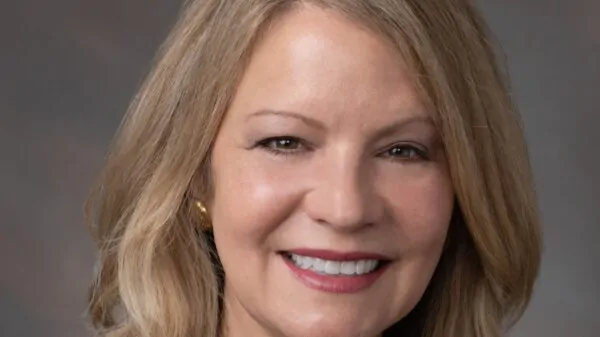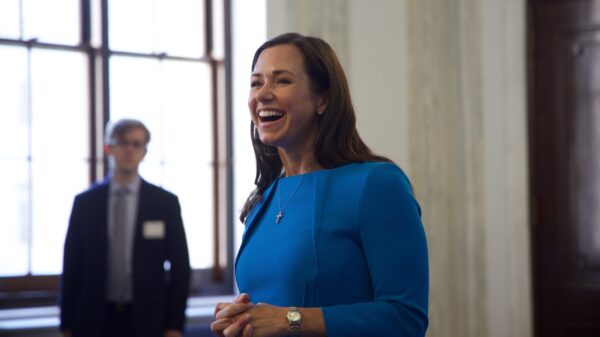On numerous book challenge forms submitted to the Autauga-Prattville Public Library over the past year, challengers have requested for books with LGBTQ+ content to be removed or even destroyed.
The newly constituted Autauga-Prattville Public Library board appears primed to do just that after making sweeping changes to its policies Thursday night that will block the library from purchasing LGBTQ+ books for children under 17 and will allow them to remove such books from the collection.
The policies were drafted with assistance from Prattville attorney Laura Clark, who the board hired during its meeting at a rate of $200 per hour. Clark has been involved in the debate over what library books are appropriate for the children’s and young adult sections from the beginning in Prattville.
She has been adamant that the library is not required to have any LGBTQ+ books in its selection at all, much less in sections designed for minors.
Clark is also the president of the Alabama Center for Law and Liberty, a legal firm originally spared by the right-wing think tank Alabama Policy Institute, which also created the right-wing site 1819 News. The ACCL and 1819 News are no longer formally tied to API, although Clark has written numerous opinion columns for 1819 News.
The board also voted to amend the budget to remove $2,000 in advertising revenue in order to be able to pay Clark, which would equate to 10 hours of her time. Boles said he didn’t expect to need more time from Clark than that, but if lawsuits were filed and more time was needed “we would go back to the budget and find the funds.” The budget for the library is about $400,000, all of which has already been set aside for other needs.
After the meeting, Boles told APR that the board had consulted with Clark pro bono ahead of her hire. He also said that he was not involved with drafting the policies, but instead had board members Doug Darr and Rachel Daniels work on that as he appointed them to the policy committee. Darr told APR that he had not dealt with drafting the policies himself, and that Daniels had done that. Clark cut in to tell Darr he didn’t have to answer any more questions. Daniels had already left the building. When APR asked Clark if she had drafted the policies, she responded “I was involved.”
Four of the five board members present were county appointees, all four of which elected each other as officers at the board’s first meeting. The other board member was new city appointee Gloria Kuykendall, who was quiet but voted in line with the four county appointees.
New city appointee Quincy Minor was absent—Chairman Ray Boles said Minor could not attend due to a prior engagement.
The most notable absence was Christie Sellers, who was one of the longest-serving members of the very fresh board, being appointed by the Prattville City Council on the same night that the Autauga County Commission appointed Doug Darr.
Sellers wasn’t just absent, she resigned from her post earlier in the day over disagreements with the board’s proposed policy changes and potential “secret meetings.”
Sellers submitted to APR a legal opinion she was sent via email by Clark, which also was sent out to each board member. The opinion deals with whether the board could go into executive session to discuss the good name and character of a public employee.
The email was sent at 2:49 p.m. on Thursday, approx. two hours before the board voted to contract with Clark. The opinion in signed by Clark and references her as attorney for the Autauga-Prattville Public Library Board despite the board never having voted to bring Clark on as an attorney, even on a pro bono basis.
Boles also references “hiring” Clark in an email sent to Sellers on Feb. 7, a day ahead of the meeting in which Clark was actually hired.
Sellers sent the following email to Danielss, copying Boles:
“Rachel: I have some serious concerns about the suggested policy changes. There are a few that clearly represent legal concerns. These policy revisions should be viewed by an attorney as several are in direct violation of the current and revised library board bylaws and the US constitution. I am open to discuss, but cannot support these changes as recommended at this time. “
The following is Boles’ response. It should be noted that Boles has said on multiple occasions that he is dyslexic, and the incorrect spelling and grammar preserved from the following email are purely to accurately reflect the contents of the public record.
“Thank you for your responts, when the Policy And By Law Commintty drafted this we hired an Constitutional attorney to help us with this, that way if we do go to court it will stand up. On another note we plan on hiring her to be in all the meeting after (read freely) attacted this board the way they did, Andrew Foster the city attorney recommenedwe do this. If you have any more questions please give me a call”
Again, the board had not hired Clark at the time this message was sent.
At its emergency board meeting in January, the board only voted on installing officers, and then went into an executive session without holding a vote, a violation of the Alabama Open Meetings Act, and then failed to close out the executive session, another violation of the Act. Boles acknowledged flubbing the prior executive session process during Thursday’s meeting, at least on those grounds, and said that is one reason the board decided to hire Clark.
The board also appears to have violated the Open Meetings Act at its January meeting by either taking a vote or taking action within the executive session.
The board recommended two nominees, Quincy Minor and Gloria Kuykendall, to the Prattville City Council, but never took any action following executive session to do so, despite the executive session being expressly set to discuss the good name and character of potential nominees.
Sellers told APR that the board did not take a formal vote on those nominees, but reached a “general consensus.”
The committee members were not appointed in open meeting, but appointed by Boles. The APPL bylaws give authority to the chair to appoint members. On January 15, after being informed by Prattville Council president Lora Lee Boone that it may be months before new library board members were appointed, Boles decided to appoint the committees via email. He had previously stated his desire to wait until the board was fully formed. His email notes he may adjust committees once the additional two members are added.
Darr told APR the policy committee didn’t actually meet and that Daniels had created the policies.
Despite the amount of changes to the policy, no discussion was had among the library board members before voting to approve the changes.
Policy changes
The most significant changes considering the conversation surrounding the Prattville library in recent months were the changes to selection criteria for materials and for weeding materials, allowing the new board to disregard the old board’s decisions to leave some challenged books where they were shelved.
The new policies being the section on selection criteria by stating that “the library seeks to provide family-friendly content and services that lead to the health and posterity of Autauga County and Prattville residents. Materials that encourage true literacy and the pursuit of good will for one’s neighbor shall be prioritized when considering the collection.”
The pertinent changes that will prevent the book from ordering books for minors with LGBTQ+ content can be found further down in the policy.
“For the avoidance of doubt, the library shall not purchase or otherwise acquire any material advertised for consumers ages 17 and under which contain content including, but not limited to, obscenity, sexual conduct, sexual intercourse, sexual orientation, gender identity, or gender discordance,” the policy states. “Age-appropriate materials concerning biology, human anatomy, or religion are exempt from this rule.”
The policy does ensure that books are not excluded “purely because of race, nationality or political views.”
The “weeding” policy piggybacks on the selection criteria and allows books to be candidates for weeding if they are “not aligned with the selection criteria.”
While the primary responsibility for selection and weeding fall with the director, the policies give the board discretion over selection and weeding.
The programming policy basically reflects the prohibitions found in the selection criteria, except applied to programming instead of materials.
The board is also creating separate library cards for minors that will prevent them from checking out the adult books with the red labels.
Another major change is a reversal of a policy the old board implemented in an attempt to ensure parents had knowledge and guidance of materials their children were checking out. The old board raised the unattended minor policy from 12-years-old to 15-years-old, meaning only teens 16 and up could browser the shelves without a parent.
The new policy basically restores the former policy.
It’s currently unclear how the new policies may affect the library’s Hoopla service, which allows patrons to browse and check out a selection of online materials not necessarily in the physical library.
The new policy would require the library to restrict Hoopla use to minors to ensure they do not checkout R-rated movies, TV-14 and above shows, or music or comics with a parental advisory. Hoopla does have a “kids” version that can be enabled by parents, but APR does not know whether that can be applied automatically by library staff.
Public comment
A few people from both sides of the debate showed up to speak. Unlike previous board meetings, the public comments were heard after the board took action rather than opening the meeting with public comment.
Several members of Read Freely Alabama, which originated in Prattville in response to the book challenges, spoke out against the board’s actions.
“Is there another microphone I should use so I don’t get my gay on this one,” asked resident Amber Frey. “ … Library boards who choose to to segregate books, particularly those related to LGBTQ and racial issues, they not only violate principles of intellectual freedom, but they also risk legal consequences.”
Christina Garner listed many of the potential Open Meetings At violations referenced earlier in this article.
She also addressed a moratorium on purchasing new books that the board voted to lift Thursday night, although no moratorium was ever voted on by the board prior.
Chuk Shirley of Clean Up Alabama thanked the board for their “effort to protect the innocence of children” and said the board changes policies all the time.
Sarah Sanchez of Clean Up Alabama chose to direct board members’ attention to Alabama Senate Bill 10 which would give local governments authority to boot library board members. She encouraged board members to engage with legislators about the bill, whatever their views on it.
She also said the one of the committee members Wednesday asked whether the “moms from Prattville” had anything to do with it. What the senator actually asked was whether “Mothers (Moms) for Liberty” had anything to do with it.
Angie Hayden of Read Freely Alabama reminded the board of the books that were reviewed by the old board that they had decided not to move.
“I also want to remind everyone, the first handful of challenge books were a board book on consent, a book about pronouns, a story about a child with a wig, a book about a teenage girl who discovers an artist she relates to lived in her apartment building and young adult, pups-love story much like any other young adult novel in that section—with the exception being that the characters were the same sex,” Hayden said. “The book challenges went on include a book about a crayon who wanted a different wrapper but learns to love and accept itself as it is; and sprinkled among the challenges were a few books that mentioned of sexual activity, some in the form of sex education books, and others teen novels that told stories of surviving sex trafficking.
“I say all this to dispel the lie that this is about protecting children from pornography. As we all very well know, there is not a single book challenge that meets that legal definition.”
Hayden also said that there were “people in this room” who probably could have benefited from a book teaching children about consent and uninvited touching.
“And I don’t just mean victims,” Hayden said.
And Hayden warned the board of potential “repercussions” to the board’s policy changes.
“You may wish that you had hired a lawyer according to skill rather than ideology,” Hayden said.
Following the meeting, Read Freely Alabama sent in a statement condemning both the policy changes and the hire of Laura Clark.
“Read Freely Alabama is deeply concerned over the ideological bent of the new library board of Autauga-Prattville Public Library and their decision to censor reading material for parents,” said Read Freely leadership. “Even more concerning is the hire of anti-library activist Laura Clark to be the board’s legal representation. Laura Clark, who also serves as the interim president of the far-right Alabama Center for Law and Liberty, has threatened the library with legislation named after Prattville unless they acquiesce to Clean Up Alabama’s censorship demands before her hiring. We will continue to monitor the board’s actions closely and advocate for all Prattville residents to be represented in their library regardless of political and ideological affiliation.”




















































